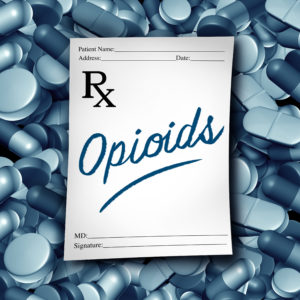President Biden signed into law the Non-Opioids Prevent Addiction in the Nation (NOPAIN) Act in December 2022. It was a landmark piece of legislation designed to prevent opioid addiction by increasing access to and use of non-opioids in surgery patients. This legislation was a tremendous victory for millions of Americans, including many who have lost loved ones to an opioid addiction that began after being exposed to opioids postoperatively. Voices for Non-Opioid Choices celebrated the enactment of this legislation.
The celebration is over.
Let’s be honest. The fight against the opioid crisis is far from over. We’re still losing 225 Americans daily to opioid-related overdoses. Opioids have grown to be more devastating than even guns, and it’s an epidemic that costs U.S. taxpayers $1.5 trillion annually.
The NOPAIN Act represents a stark shift in our approach to combatting the opioid addiction crisis, correcting rinse-and-repeat efforts that haven’t worked. With 90 percent of patients still receiving opioid prescriptions to manage post-operative pain, the NOPAIN Act will go a long way toward ensuring surgery patients have access to non-opioid treatments instead. It’s an upstream solution designed to help the 6 percent to 20 percent of patients who go on to form a long-term habit after an opioid prescription.
But as big as this win is, it’s no silver bullet. The NOPAIN Act — as vital as it is — is not a panacea. The legislation is limited to ensuring access to non-opioid pain approaches for one specific patient population — those undergoing an outpatient surgical procedure. In other words, the NOPAIN Act will ensure that patients will receive access to non-opioids in an outpatient surgical setting.
However, the legislation will do little to ensure that seniors have equal access to non-opioids at the pharmacy counter.
Accordingly, one group of Americans remains at risk of being unnecessarily exposed to opioids: seniors on Medicare Part D. In the last decade, overdose deaths among seniors have increased by more than 60 percent. Since 2021, more than a million seniors have been diagnosed with opioid use disorder, and 50,000 seniors suffered an opioid-related overdose.
But it doesn’t have to be this way. Congress has spent years devoting hundreds of millions of dollars to combatting the opioid addiction crisis, including critical steps like providing support to first responders, increasing the availability of overdose-reversing treatments in communities, and urging innovation in the marketplace to include non-addictive options.
Now, it has the opportunity to go the last mile.
Just a few changes to Medicare Part D can ensure that non-opioid therapies are as accessible to seniors as opioid-based options.
Luckily, the Alternatives to Prevent Addiction in the Nation Act (Alternatives to PAIN Act) does precisely that, proposing a few critical updates to the laws that benefit seniors. This legislation will ensure that patients will not be denied access to these approaches due to administrative barriers like step therapy or prior authorization that make medications more difficult to obtain. Additionally, the legislation ensures that health insurers cannot put onerous cost-sharing requirements on patients should they prefer non-opioid pain approaches. Not only will these updates reduce the tax burden on Americans but they will also significantly lower barriers to safe and effective pain treatments.
Every American deserves real choices when it comes to managing pain or recovering from surgery. If we can pass the Alternatives to PAIN Act and make critical updates to the law, we can build on the gains of the NOPAIN Act and reduce the incidence of post-surgical opioid addiction for one of our most vulnerable populations.
We are thrilled and excited to see the effect of the NOPAIN Act. But we will not rest until every American can access non-opioid pain treatments. Our work to prevent addiction — and save lives — depends on it.


